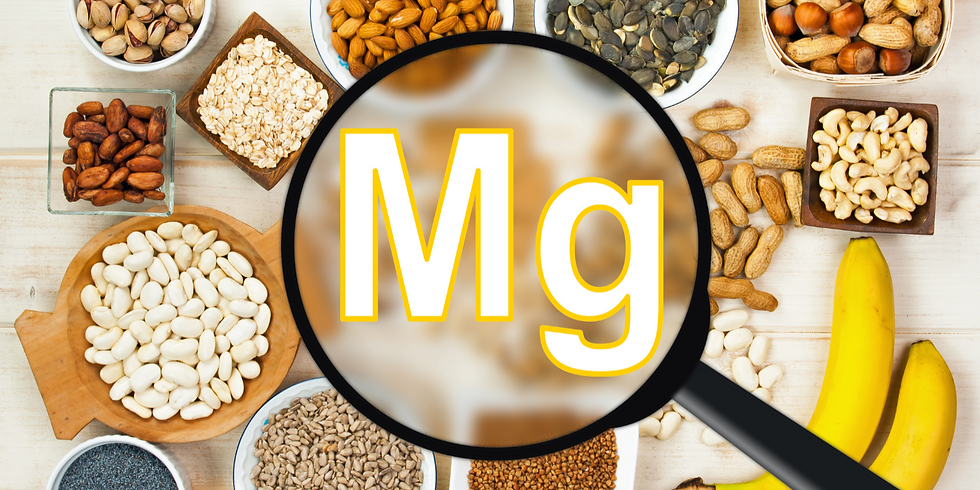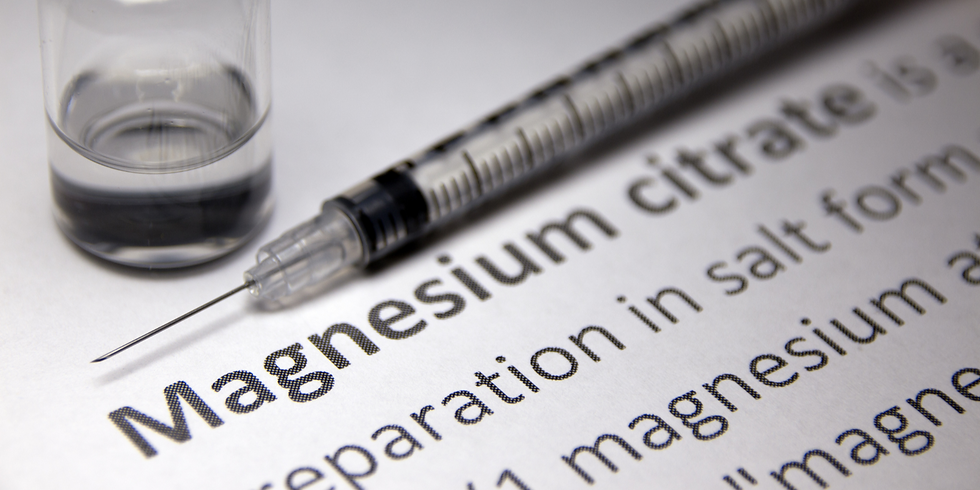3 Benefits of Digestive Enzymes
- Katie Bailey, MS, RD, LD, FNC

- Jun 11, 2024
- 5 min read
Video Transcript:
Hi everyone. Welcome back to our channel.
What are digestive enzymes and how do they work?
How do you know if you should be taking digestive enzymes?
What are the benefits of digestive enzymes?
Can digestive enzymes help with IBS, leaky gut and other digestive disorders?
How are digestive enzymes different from probiotics?
When should digestive enzymes be taken?
And how to choose the right one for you.
And then lastly, what are some potential side effects of digestive enzymes?
These are the questions we'll be addressing in today's video. Hi, I'm Katie Bailey. I'm a registered dietician at Flusso Nutrients where we provide supplement education and professional quality supplement options for you to make the world of nutrition supplements a little bit easier to navigate.
As always, make sure to check with your main nutrition literate healthcare provider before starting anything new, as we can't possibly know your full medical history to make a personalized recommendation.
So without further ado, let's jump into today's video.
What are digestive enzymes and how do they work?
Digestive enzymes are proteins that our body naturally produces that catalyze chemical reactions in the body aiding in the digestion of our macronutrients, which are carbohydrates, proteins, and fats.
They assist in helping to break down these larger nutrients into their smallest forms, allowing them to be absorbed into the bloodstream.
These enzymes are produced by various organs, including the pancreas, our stomachs, and small intestines. And each enzyme is tailored to recognize and act on specific substrates, ensuring that the digestive process is running smoothly and effectively.
So for example, protease is an enzyme that is going to break down protein into peptides, and then amino acids, which is the smallest form amylase, are going to target those complex carbohydrates, breaking them down into simple sugars like glucose, and then lipase is going to break down fats into our fatty acids and glycerol, how do you know if you should be taking digestive enzymes?

While most people can benefit from digestive enzymes, there are certain symptoms that could indicate a need for supplementation. If you experience frequent gas, bloating, abdominal discomfort after meals, that could be a sign that your body's struggling to break down these nutrients to absorb.
Other indicators include irregular bowel movements, fatigue, skin issues, and food sensitivities.
It's also important to note that as we age, our natural enzyme production does decrease, and if you are struggling with any of these symptoms or other digestive issues and you're not sure if you would benefit from taking a digestive enzyme, I would highly recommend that you work with a professional that can help you determine what would be best for you.
So what are the benefits of digestive enzymes?
Well, one of the most significant benefits of digestive enzymes is their ability to enhance nutrient absorption.
So when food is properly broken down into their smallest component, it allows the body to more easily absorb and utilize the nutrients that they contain.
In adequate enzyme production can lead to things like malabsorption, which is going to deprive the cells of vital nutrients that they need to properly function.
Supplementing can ensure that you're getting the maximum nutritional value from the foods that you consume, which is going to prevent nutrient deficiencies and boost energy.
The second benefit is enhanced gut health.
So digestive enzymes can help maintain a balanced and healthy gut environment by facilitating the breakdown of our food particles that could otherwise contribute to inflammation, irritation of the gut lining and digestive discomfort.
So by promoting efficient digestion, enzymes can help reduce the strain on the gut as well as minimize the risk of digestive issues.
For example, if proteins are not fully broken down into their smallest form, which is an amino acid, and they enter the bloodstream as a peptide, then the immune system can tag that peptide as a foreign substance and cause an immune response in inflammation.
The last benefit is the alleviation of food intolerances.
So certain enzymes can break down specific compounds that trigger reactions for people helping to alleviate their symptoms.
So for example, lactase can help individuals who have a lactose intolerance because the lactase enzyme helps to break down lactose, that can cause many symptoms for people.
So by supplementing with targeted enzymes, you can help alleviate the discomfort from food intolerances, and this allows you to eat, have a wider variety of foods without the unpleasant side effects.
Can digestive enzymes help with IBS, leaky gut and other digestive issues?
And the answer to that is yes.
So individuals with IBS or digestive issues tend to struggle to break down certain foods leading to symptoms like gas and bloating and abdominal pain.
Now, although trigger foods are going to differ from person to person, there are some common offenders. Things like dairy products and gluten legumes, and certain fruits and vegetables enzymes like alpha galas, lactase, and cellulase are some enzymes that help to break down these foods, helping to alleviate these symptoms.
For individuals struggling with high FODMAP foods, which are going to be groups of carbohydrates that some people have trouble digesting enzymes like lactase and the alpha galactoses is going to help break down those problematic carbohydrates.
Now, enzymes like Dipeptidyl peptidase-4 and prolyl endopeptidase are going to help break down gluten for those that struggle with gluten sensitivity.
How are digestive enzymes different from probiotics?
While digestive enzymes and probiotics both play important roles in gut health, they serve different functions.
Probiotics are live microorganisms that contribute to that healthy bacteria in the gut, while digestive enzymes facilitate the breakdown of food particles for absorption.
In many cases, a combination of both probiotics and digestive enzymes can be beneficial as they do work together to promote a healthy gut environment.
Digestive enzymes ensure that food is properly broken down and absorbed providing the fuel for that healthy bacteria to thrive.
When should digestive enzymes be taken and how to choose the right one for you?
The timing of digestive enzyme supplementation can significantly impact their effectiveness.
Generally, it's recommended to have them at the beginning of a meal or shortly before 10 minutes or so.
This allows the digestive enzyme to already be in your digestive system when the food arrives so that you'll have optimal breakdown in absorption of that food.
When choosing a digestive enzyme, you want to have a comprehensive blend of enzymes, including your proteases, amylase, lipases, as well as any specialized enzymes like lactase.
If you're lactose intolerant, depending on your specific needs.
What are some potential side effects of digestive enzymes?
Well, most digestive enzymes are well tolerated and considered safe for most individuals.
Some people may experience mild digestive discomfort like gas, bloating, or loose stools when they first introduce digestive enzymes.
Now, these side effects tend to be temporary and often a result of just increased enzymatic activity that your body's trying to adjust to, and usually as your body adapts, these symptoms will go away.
Now, if they don't go away or they get worse, then obviously talk to your healthcare provider that can help you determine next steps
In today's world full of highly processed foods and lifestyle factors that can compromise our digestive health.
Supplementing with digestive enzymes can be a game changer for many individuals.
By supplementing with a comprehensive blend of enzymes, not only can you support your body's natural digestive capabilities, you can also enhance nutrient absorption, promote gut health, and alleviate digestive discomfort.
If you're interested in incorporating digestive enzymes into your routine, I will link a couple quality supplements below.
If you're interested in working with our clinic, you can click the link here to make an appointment.
We do take insurance and you can find more information about that on our website.
Thank you for watching. I'll see you next time. Bye.
Check out the high-quality supplements we discussed in this video - links below for your convenience!
1) Digestive Complete: https://flussonutrients.nutridyn.com/digestive-complete
2) Digestive Vegetarian: https://flussonutrients.nutridyn.com/digestive-vegetarian
3) ALL PROFESSIONAL QUALITY SUPPLEMENTS: https://flussonutrients.nutridyn.com & https://us.fullscript.com/welcome/flussonutrients




Comments